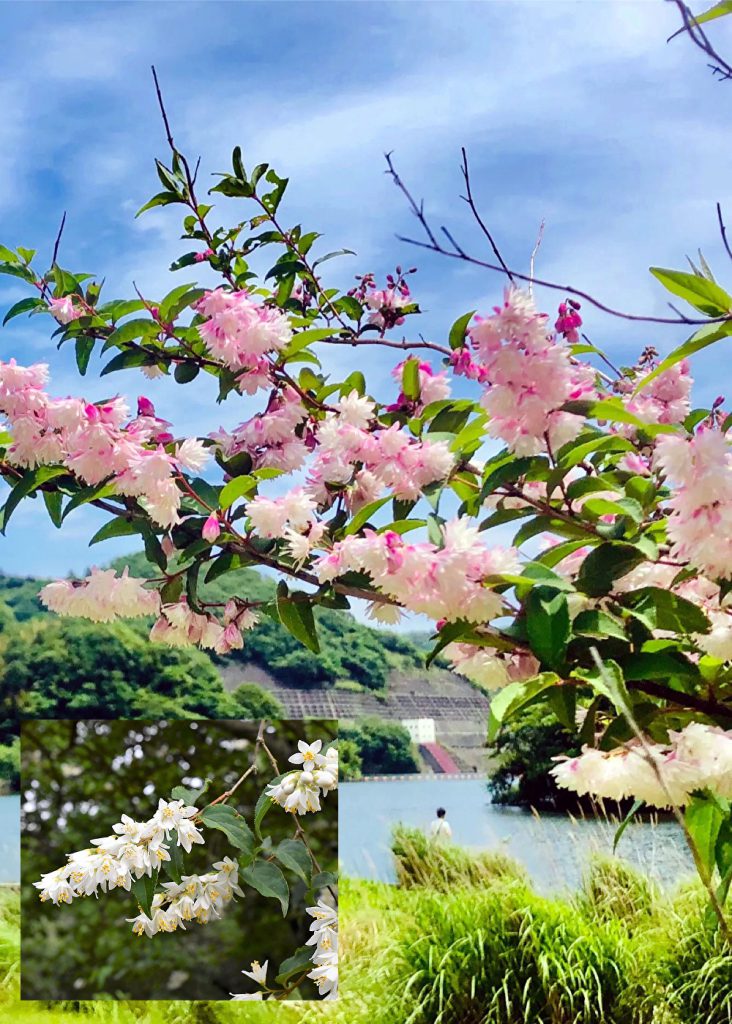
Springs of verbena Thrust in my cab-such will be My fancy attire
(Translated by Donald Keene)
This phrase is contained in the travelogue “Oku no Hosomichi” written by Basho Matsuo, but the author is Sora Kawai, a disciple. In May 1689, Basho Matsuo embarks on a journey from Fukagawa in Edo to Oshu with his disciple Sora Kawai. He crossed the Shirakawa barrier in less than two weeks after his departure. The Shirakawa Sekisho was established in the Nara period to prevent invasion from Ezo, and is considered to be the entrance to Michinoku (Tohoku region). There was a legend that when passing through the sekisho, they dressed up and crossed in memory of past travelers and in honor of them. Sora’s haiku sang the meaning that he didn’t have enough costumes to dress up for his trip, but he crossed this barrier with the intention of holding Unohana over his hair and dressing up. Unohana is another name for Utsugi, and it is a plant with a long history that has been popular since ancient times, such as being sung in the Manyoshu. It is also sung in the nursery rhyme “Summer has come” and is a plant that is familiar to us.
卯の花を かざしに関の 晴着かな
この句は、松尾芭蕉が書いた紀行文「奥の細道」に収められていますが、作者は弟子の河合曾良です。1689年5月、松尾芭蕉は弟子の河合曾良を伴い、江戸の深川から奥州の旅に出ます。出発から2週間足らずで白河の関所を越えました。白河の関所は、奈良時代に蝦夷からの侵入を防ぐため設けられ、みちのく(東北地方)の入り口とされており、能因法師や西行といった吟遊詩人や多くの旅人が通過した関所です。関所を通る際には、過去の旅人を偲び、敬意を表す為に衣服を整えて越えていったという言い伝えがありました。旅の服装で整えるほどの衣装は持たないけれど、卯の花を髪にかざして晴着のつもりでこの関所を越えましたよ、という意味合いを歌ったのが、曾良の俳句です。卯の花とはウツギの別名で、古くから万葉集で詠まれるなど親しまれてきた歴史のある植物です。童謡の『夏は来ぬ』でも歌われ、私達にも馴染み深い植物でもあります。
